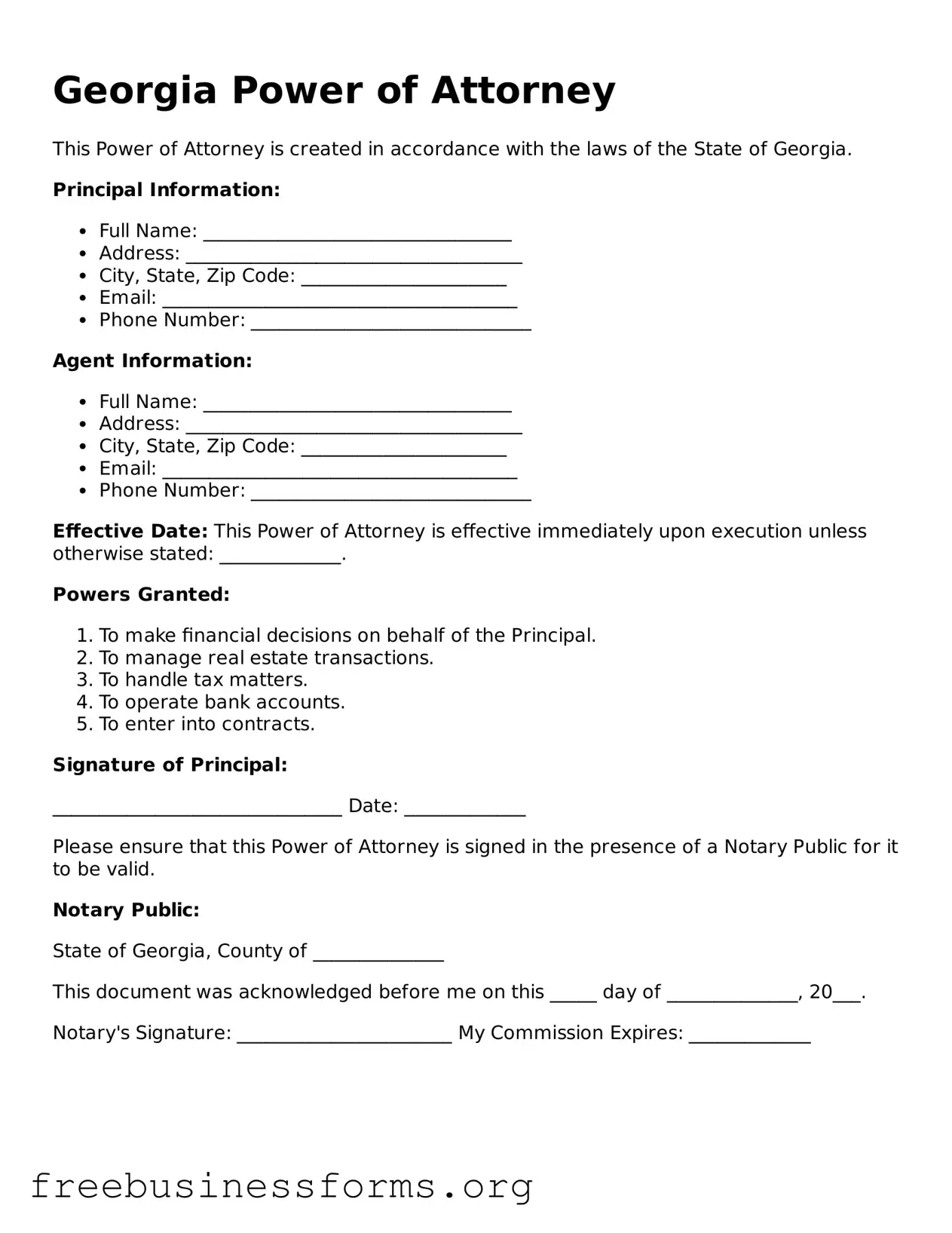Georgia Power of Attorney
This Power of Attorney is created in accordance with the laws of the State of Georgia.
Principal Information:
- Full Name: _________________________________
- Address: ____________________________________
- City, State, Zip Code: ______________________
- Email: ______________________________________
- Phone Number: ______________________________
Agent Information:
- Full Name: _________________________________
- Address: ____________________________________
- City, State, Zip Code: ______________________
- Email: ______________________________________
- Phone Number: ______________________________
Effective Date: This Power of Attorney is effective immediately upon execution unless otherwise stated: _____________.
Powers Granted:
- To make financial decisions on behalf of the Principal.
- To manage real estate transactions.
- To handle tax matters.
- To operate bank accounts.
- To enter into contracts.
Signature of Principal:
_______________________________ Date: _____________
Please ensure that this Power of Attorney is signed in the presence of a Notary Public for it to be valid.
Notary Public:
State of Georgia, County of ______________
This document was acknowledged before me on this _____ day of ______________, 20___.
Notary's Signature: _______________________ My Commission Expires: _____________
